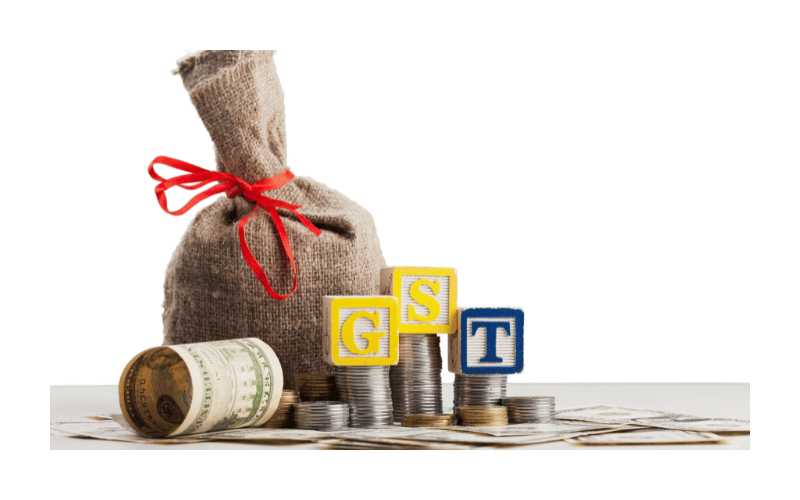Daily electronic payments have become customary in India, which means any information about transactional changes spreads rapidly throughout the nation. Internet users throughout India observed widespread distribution of news on social media platforms and WhatsApp that stated the Indian government intended to impose an 18% GST tax on UPI payments above ₹2,000. User panic made them doubt if digital transactions over ₹2,000 would soon become more expensive. But how true is this claim? The rumor implies that the government plans GST taxation for UPI payments above 2000 Rupees, yet people wonder whether this information originates from inaccurate sources or represents actual policy developments. We will examine the actual situation regarding the UPI GST charge rumor and tackle the widespread inquiry about the UPI transaction GST application.
The Viral Claim: Where Did It Start?
The news about GST on UPI payments spread along with other modern-day rumors through social media networks. Social media users disseminated posts that suggested UPI transactions exceeding ₹2,000 starting April 2025 would earn an 18% Goods and Services Tax (GST). All posts lacked reputable source backing, yet used sufficient assurance to generate user concern regarding the information.
The rumor gained credibility because it provided exact information about the 18% GST rate along with the ₹2,000 limit. Naturally, people began to worry. The majority of Indians use UPI transactions as their primary payment method to handle millions of daily purchases, which include buying groceries and paying monthly rent. Such a tax proposal created widespread fear about its impact on India’s digital economy because of its apparent massive damage to the sector.
Government’s Official Response: Clearing the Air
A short period after widespread speculation arose, the Ministry of Finance issued official statements to refute the false information. The ministry declared the claim about an 18% GST on UPI payments to be entirely false and baseless misinformation. The government declared that no such decision was made because UPI transactions stayed exempt from GST application.
Leading national newspapers, Times of India and NewsBytes, and business outlet Outlook Business covered the official explanation. The government clarified that UPI digital transactions remain GST-free because these transactions are entirely free of processing fees or Merchant Discount Rate (MDR) payments.
Why UPI Transactions Are GST-Free
Understanding the situation with GST on UPI requires a basic understanding of the GST tax structure. The Goods and Services Tax applies to every supply of goods and services. Banks and payment gateways impose MDR and card processing fees, which constitute the services that would typically attract GST taxes in digital payment contexts.
The Reserve Bank of India, together with the Ministry of Finance, established through regulation that UPI stands free of charges for MDR. The service fee becomes nonexistent when you pay through UPI since neither party will face any expenses for the transaction. The GST application becomes impossible because UPI operates without any service charges to determine taxable amounts. The payment of GST on UPI transactions remains unanswered because the system operates without any service fees. The answer regarding UPI transaction fees being subject to GST charges is an absolute no.
Whatwass discussed by the GST Council?
A miscommunication about GST taxation possibly occurred because another meeting by the GST Council during late 2024 raised the potential application of an 18% GST rate on payment aggregators, which help process merchant transactions. The specified proposal focused solely on GST imposition for transactions under ₹2000 made by card payment systems but excluded UPI procedures. GST would be imposed on service fees that aggregators received for processing payments according to the proposed legislation.
This distinction is important. Transactions through UPI occur without any charges, but credit and debit card operations commonly demand processing fees from users. The GST regulatory fee will go towards taxing the services aggregated by payment processors rather than affecting the transaction values. The recommendation was referred to the fitment committee for additional assessment procedures, following which it has not been implemented.
The idea of digital payment service taxation received attention, but UPI remained outside of these discussions. The publiclost sight of these details during discussions so many people thought UPI payments would be taxed.
India’s Push for a Cashless Economy
Reviewing the complete policy environment helps explain why the government takes its current position. Digital payment initiatives have received dedicated support from Indian authorities for a long period. The government implemented Digital India and BHIM UPI as modern initiatives that target three main goals, including cash reduction and enhanced financial access while promoting transaction clarity.
The government has launched multiple proactive actions to back up this agenda.
Digital payments become cheaper for merchants because the government eliminated UPI and RuPay transaction fees.
Banks and fintech companies receive incentives from the government to increase UPI adoption across the board.
The National Payments Corporation of India (NPCI) benefits from planned funding to deliver smooth transaction processes.
The implementation of GST on UPI payments would work against every effort made to foster these sustainable growth initiatives. The government dedicated ₹1500 crore to UPI growth and other payment ecosystems implementation through the Budget 2024-25. The system aims to stimulate digital transactions while staying away from any form of penalty.

Why Taxing UPI Would Hurt More Than Help
The implementation of GST taxation on UPI transactions will both violate India’s cashless vision and reduce millions of people who use digital payments. The implementation of GST on UPI transactions creates obstacles for small vendors and workers receiving no costs to payments which drives them away from using digital payments and instead prompts them to return to cash-based transactions. The introduction of GST on UPI transactions risks revealing flaws in digital literacy initiatives that the government spent many years developing. Different UPI international collaborations that make India a global fintech leader require continuing to keep the system free of friction. A tax on the UPI system at this moment would stop progress and delay the digital success worldwide people observe in India.
UPI’s Impact on the Indian Economy
UP delivers 12 billion transactions monthly that surpass ₹18 lakh crore worth of transactions during the early months of 2025. Indians rely on UPI as the central infrastructure that supports their digital economic activities throughout every segment of both rural and urban territories. Every Indian purchasing from low-cost street vendors through high-end retail stores relies on UPI.
UPI has achieved high levels of adoption because users experience zero costs and instant transaction settlements, and easy payment methods. Changes, especially related to taxation, would negatively impact user behavior across the board. Because of its widespread adoption, the government has made a plan to maintain free UPI usage for users.
The entire world economy has started to observe UPI success. Several international nations seek to implement similar payment solutions based on UPI and the National Payments Corporation of India has forged relationships with Singapore, along with France and the United Arab Emirates, to establish UPI as a universal payment standard.
What This Means for Consumers and Businesses
This clarification allows everyday users to keep using UPI for payments because they will not face any cost increases. All UPI transactions stay free of GST regardless of whether users transfer money to friends or use the payment method for taxi fare or e-commerce shopping.
SMEs, alongside other businesses, welcome this decision positively. The ability to accept payments through UPI results in increased profits through MDR and GST exemptions, which drives better customer satisfaction. The transactions under UPI simplify accounting processes because no tax needs to be calculated or reported.
Don’t Fall for Fake News: Verify Before You Panic
Recent speculation about GST implementation on UPI payments demonstrates our modern difficulty in managing false information spread during the digital transformation. Responsible users need to check information before they execute any action. Users can trust information coming from the Press Information Bureau (PIB) and Ministry of Finance updates, and reputable news platforms.
Public systems lose trust when people encounter false information. Consumer faith in digital payment systems is very important for their operation, so misinformation about them can create extensive consequences.
Conclusion: The Facts Are Clear
GST does not apply to payments processed through UPI, but that remains unclear. No, it is not. The government officially stated that UPI payments do not have any tax obligation, and no tax plans exist for this service. The 18% GST rumors have been officially refuted by the Ministry of Finance, even though they remain false.
UPI maintains its position as an essential element in India’s digital payment framework because the government actively supports its expansion. The future of UPI will get better through increased state incentives, along with worldwide industry partnerships designed to improve its capabilities.
Users and the business community should maintain their reliance on UPI payments because there are no expected hidden charges during their transactions. So when you encounter a viral social media post about a policy shift, verify their accuracy because those claims usually turn out to be less severe than they seem.














